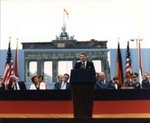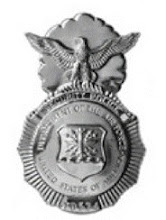I wrote the following letter to our local newspaper. I was tired of the people trashing the Constitution without much knowledge of the history surrounding the writing and inclusion of the Bill of Rights. The discussion over gun rights degenerated into a name-calling contest. It's sad that disagreement leads to such stupidity. The New Town disaster effected us all. The fact that I and those of like mind, want the Second Amendment to be understood and followed doesn't mean we don't feel pain for those lost and their families. It just means we aren't to blame and we shouldn't be the scapegoat for anti-gun people.
I wrote:
I am a history teacher, a retired police officer, and a military veteran. My
understanding of the Second Amendment is colored by my personal experiences and
my knowledge of history. To say that some of the letters I've read are missing
the point of the amendment is an understatement. From an historical perspective
it is necessary to take into account the situation in the colonies as it
pertains to their relations with the British prior to the Revolution.
To the American colonists, a standing army was
the very embodiment of oppression. After all, the British Army enforced the
laws. Throughout the 1760s, the various heavy taxes that so enflamed the
colonists, were levied as the British Army fulfilled the role of what we know as
the police. The Battle of Lexington and Concord that took place on April 19, 1775, was
prompted by two things. The British certainly wanted to arrest Samuel Adams and
John Hancock, rabble-rousers for sure, but they also wanted to find a reported
stash of weapons and gunpowder that was rumored to be in the area. In other
words, the British wanted to disarm the colonists. Compliance to tyrannical
British policies would more easily be pressed upon a defenseless citizenry.
The Constitution was signed without a "Bill of
Rights" that was later added. I caution my students constantly against looking
at the Bill of Rights without taking into account the history of when it was
written. If one were to doubt that the founders feared a standing army and its
tyranny, look at the Third Amendment which prohibits quartering of soldiers, or
the forced housing of British soldiers in private homes. These were people, who
suffered real government oppression, so they wrote the Bill of Rights to
preclude a repeat of their experiences.
Looking at the Second Amendment gives us the
phrase " A well regulated militia." An understanding of history tells us that
the "militia" was synonomous with "the people." After all, who were the
militia, other than the people? The founders feared government power and they
wanted to make it clear that an armed people is a free people. The phrase "well
regulated" refers to the First, Fourth, Fifth, and Sixth Amendments
which regulates and enumerates the powers of any police force, be it militia or
otherwise.
The founders had a specific agenda in mind when
they wrote the Bill of Rights. They understood oppression as only they could.
In present day America, government oppression is much more subtle. I don't
anticipate taking up arms against my government anytime soon, but we need to
understand what the Bill of Rights means. As Thomas Jefferson said, "When the
people fear the government there is tyranny, when the government fears the
people there is democracy." If the government were to take away any of the
rights of the people enumerated in the Bill of Rights, it would break an
agreement between the people and their government that has kept us free for over
two hundred years.
Wednesday, April 3, 2013
Subscribe to:
Post Comments (Atom)










No comments:
Post a Comment